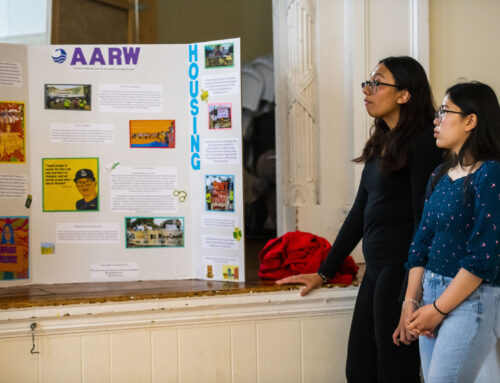
“The Supreme Court has voted to strike down Roe v. Wade according to an initial draft majority opinion written by Justice Samuel Alito and obtained by Politico.” I remember blinking twice in disbelief when I opened Instagram to those words on May 2nd, 2022. This definitely wasn’t the MET Gala coverage that I had been expecting.
On Monday, May 2nd, Politico obtained and published a confidential Supreme Court draft of a majority opinion to overturn Roe v. Wade. By the next day, the Supreme Court had confirmed the document’s authenticity, stressing that the draft was not a final decision.
Within minutes, my social media was flooded with reposts of the NBC News map of states that would ban abortion in a post-Roe v. Wade world. According to the map, out of the 56 U.S. states and territories, 23 would immediately ban abortion if Roe v. Wade was overturned, with nine others imposing immediate restrictions. Only 24 would protect against abortion.
49 years ago, on January 22nd, 1973, the Supreme Court ruled 7-2 against a statewide abortion ban in Texas, deeming it a violation of privacy under the 14th amendment. The case followed Norma McCorvey’s lawsuit against Dallas, Texas District Attorney Henry Wade, setting the precedent and effectively legalizing abortion in the United States. Today, the landmark legal decision is most commonly referred to as Roe v. Wade. Under Roe v. Wade, a woman’s right to abortion before fetal viability, the point at which the fetus can survive outside of the womb, allows access to abortion typically before 24 weeks of pregnancy.
Since the passage of Roe v. Wade, the legalization of abortion has continued to spark controversy as a dividing topic in American Politics. Over 20 other states have passed laws restricting abortion in just the past two years, according to USA Facts, with a notable one being the Texas “Heartbeat Law” that made headlines less than a year ago. In March, Idaho passed legislation that placed a similar ban on abortion after only six weeks into the pregnancy. The law is also enforced in a similar vigilante style to the Texas “Heartbeat Law”, and allows the father, sibling, grandparent, aunt, or uncle of the fetus to take legal action against the medical professional who performed the abortion. In April, an even more aggressive abortion law in Oklahoma allows abortion only if the pregnant person’s life is at risk, excluding cases of rape and incest.
On the other end of the spectrum, political proponents of abortion rights including President Joe Biden have criticized these restrictions, though because private companies and citizens, rather than the government, are responsible for enforcing the law, no official reprimands have been made.
Since the leakage of the Supreme Court document, Biden has spoken out against the movement to overturn Roe v. Wade, raising the question of what else would be at stake in a post-Roe world.
“It would mean that every other decision related to the notion of privacy is thrown into question,” said Biden in an interview with The Guardian.
In a post-Roe v. Wade world, even more than the right to abortion is at stake; other rulings surrounding an individual’s right to privacy could be disputed on the judicial level. This includes laws surrounding abortion travel across state lines and the right to buy and use contraceptives, extending also to potentially challenge same-sex marriage and anti-discrimination laws.
After Politico released the 96-page document draft, I watched as the nation lit up in protest, with theories surrounding the source of the leak circulating through the media. While Republican supporters claimed that the leakage was initiated to rally the Democratic platform for upcoming state elections, liberals pointed at Republicans for using the leakage to lock in the votes to overturn Roe v. Wade. Meanwhile, thousands of pro-choice demonstrators protested the document outside the Supreme Court, a sentiment echoed in cities and college campuses across America.
While American citizens and politicians diverged into part lines and pointed fingers, all I felt was panic. The feeling of losing control. The feeling of having my rights taken. To say I was terrified is an understatement because in that instant I realized for the first time just how little ownership I hold over my own body.
The overturning of Roe v. Wade would further a century’s-long war over abortion rights. And while much of the battle will shift to state legislatures, with Congress and the courts remaining important players, our role as citizens holds immense importance too. I urge you, whether politician or civilian, to voice your opinions and take action. The future of young women like myself quite literally depends on it.



